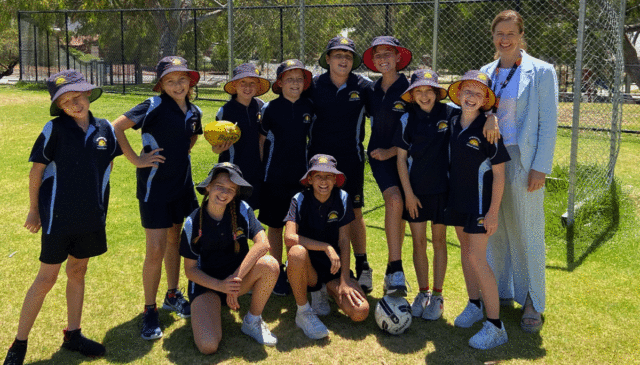
In an effort to make sport more accessible, more sporting facilities on public school sites will be opened up for community use outside of school hours.
The state government’s $10 million initiative will allow more community groups to access public school facilities, including basketball, netball, and volleyball courts, ovals, and indoor sports halls for their activities.
Known as the Community Use of School Sporting Facilities Program, the initiative aims to facilitate partnerships and agreements between schools and community sporting groups to better utilise existing facilities.
Funding will be prioritised for schools in areas with high demand for sporting facilities.
Premier Roger Cook believes this new program will create more opportunities for people to stay active and connect with others in their local communities.
“This $10 million initiative is a win-win for WA public schools and community sporting groups, making better use of local sporting facilities outside of school hours,” Premier Cook said.
“More local sporting groups will be able to access facilities that may have previously been unavailable to them – particularly in areas where there is high demand. Participating schools will also benefit from targeted funding to help improve their facilities.”

From Term 1, 2025, schools will be able to apply for funding to purchase eligible items such as goalposts, nets, and minor equipment, as well as make upgrades like installing gates, locks, and monitoring systems for safe after-hours access.
The program will maximise the value of school facilities, transforming them into valuable community assets, according to WA Education Minister Dr Tony Buti.
“This initiative strengthens community bonds and ensures school sporting facilities are used to their full potential outside of school hours,” Buti said.
“Not only does it contribute to enhanced co-operation and goodwill through stronger community engagement and increased awareness of school activities, security in and around the school is improved through regular out-of-hours use.”













